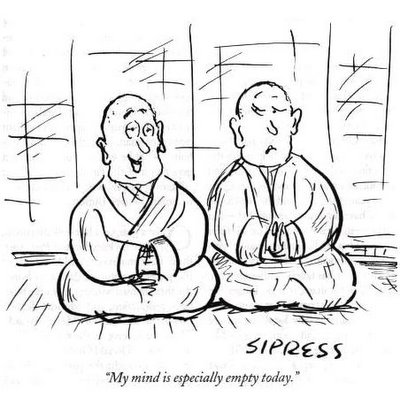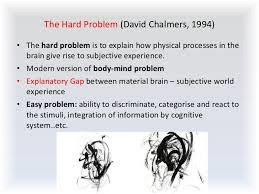![]()
 Happiness and Public Policy
Happiness and Public Policy

Not all people would say that happiness is the highest good, Some would instead assert that
a meaningful life is more important. Still others would posit different values. A thoughtful consideration of the matter does reveal that
happiness, broadly construed, best serves the public weal. To benefit a nation, policies must define the public good and provide instruments for implementing it. This is not easy in part because people are widely adaptive to bad situations. They can ignore smog, accept TV schlock, endure traffic jams, shrug off global warming because that’s the way things are. This acceptance is rather akin to
a frog in a pan. Dump it into boiling water, goes the story, and it will immediately jump out. Place it in luke warm water, then
slowly turn up the fire, and it will cook to death. We are cooking as I write.
 |
| John Stuart Mill |
Happiness has recent history as public policy. In antiquity Aristotle wrote of happiness for the individual amidst an elite. In the Nineteenth Century
Jeremy Bentham argued for it as a policy of the
greatest good for the greatest number. His view of human behavior came down to this: "
Nature has placed mankind under the governance of two sovereign masters, pain and pleasure. It is for them alone to point out what we ought to do, as well as to determine what we shall do. On the one hand the standard of right and wrong, on the other the chain of causes and effects, are fastened to their throne. They govern us in all we do, in all we say, in all we think." As a result of his pleasure/pain calculus he famously said push pin is as good as
John Stuart Mill espoused a system to promote it.
poetry. He spoke of a game with needles for gambling. From Bentham,
As a classical empiricist in a society with slaves to do the work,
Aristotle maintained that happiness was inseparable from leisure and that labor was a vice. On the cusp of the British Industrial Revolution, Mill proposed
Utilitarianism--the greatest good for the greatest number--
as public policy.
 |
| William James |
World-wide surveys repeatedly reveal that people regard happiness as indisputably desirable. It consistently ranks at the top in surveys all over the globe. Whatever the values of various societies and cultures, humans almost universally grade happiness as an extremely important value.
In the United States,
William James and others developed the philosophy of
Pragmatism, which evolved out of the ideas of Mill.
Both Utilitarianism and Pragmatism did not aim at happiness for the individual in particular but for society in general--happiness as part of public policy. Broadly speaking, in the United States such policy is a feature of liberal agendas, which conservatives roundly curse while favoring dollar democracy. In Europe, the notion of public weal has remained as a larger feature of public policy, although economics and government belt-tightening challenge the policy.
If surveyed, most people would endorse public policies that promote happiness for the greater number of people.
Implementing such policies would not be easy. Planners must agree upon sources and causes of happiness. Having done that, the devil follows in the details. How to implement a public policy for happiness? In the United States, liberal policies have been increasingly deconstructed by conservatives who have called them failures, although a scholarly study of the matter reveals an equal share of intellectual muddle on both sides, liberal and conservative.
Despite this wrangling,
a major question is ignored in public policy. Do degrees of happiness consistently correlate to income or do they depend on societal, cultural, and individual situations?
This wrangling partly occurs because
in America money is confused with happiness. The conditions for individual happiness are identified by that which is believed to support it, which in the United States is almost exclusively the dollar. American studies of happiness reveal high incomes as correlated with happiness. People associate more money with a better life.
Elsewhere on the globe, this association does not occur as noticeably. To be sure, people everywhere agree that happiness is difficult in extreme poverty, but definitions of poverty vary, and high income is not universally ranked as important. Indeed, in Western, materialistic, societies, happiness is associated with greater "stuff." Those who have things are presumed to be happier. And there is some truth to this. Some, but not all.
Global surveys continue to reveal that although the rich are significantly happier than the poor, average happiness levels change very little in index to people’s incomes.
War-ravaged Japan was still reconstructing in 1960 when surveys were taken to determine the average level of happiness. By 1988 Japanese per capita income increased four times above its 1960 level. People had more cars, shoes, clothes, cameras, stereos, washing machines, and
yet the average happiness remained constant with 1960. This pattern was not unique to Japan. It repeats itself in other countries.
Other elements of happiness polls suggest something about human nature--that
people don't really know what is good for them. Put differently, they may say one thing and do another. * Higher incomes do not necessarily promote greater happiness, why, then, do people want more money?
* ( In some circumstances, this is labeled as blatant hypocrisy, but often it reveals that people don't understand the workings of their own minds, or have not sorted through their conflicting beliefs.)
A related question--in order to buy more stuff and reduce tax burden, is steady, persistent per capita income growth desirable in terms of happiness?

In
Daedalus, (Vol. 133, Issue 2, spring 2004)
Robert H. Frank (author of
Luxury Fever) casts an
4000 square foot homes, totally isolated from another people living in
3000 square foot homes. He calls each
Society A and Society B.
Because separated from one another, each people is equally satisfied and do not question the square-footage norm. Further, the larger houses do not provide advantage in terms of longevity or health.
interesting light on the subject. He offers two scenarios, one with a people living in
He observes that "it takes real resources to build larger houses." The difference between 3000 and 4000 square feet implies a difference in resources. His question: "
Are there alternative ways of spending these resources that could have produced lasting gains in human welfare?"
Society B (smaller home) residents use saved resources for the commonweal. They spend the money and material to promote specific changes in their living conditions. ". . . cost savings from building smaller houses are sufficient to fund not only the construction of high-speed public transit, but also to make the added flexibility of the automobile available on an as-needed basis." (Frank) In short, they don't need a car but can drive it if they want to. They simply don't have one thousand additional feet of floor space.
Because all income goes toward stuff, Society A residents have no excess resources for improvement of their situation. They cannot fund pubic transit and must depend on the automobile. Their cars continue to cause traffic gridlock and high stress levels. Although nicer to live in, is the larger home more valuable in the context of longer commute times, traffic jams, and traffic noise?
These are factors demonstrably correlated to reduction in happiness. When a new, noisy highway was opened, people living next it were studied. Shortly after its opening, 21 percent said the noise did not bother them; a year later, the figure dropped to 16 percent. Prolonged exposure to noise elevates blood pressure lastingly. Auto commuters are subject to various noises. Things are out of their control. They cannot predict bottlenecks or accidents. They get cut off by drivers even more tense. "A large scientific study documents a multitude of stress symptoms" from daily commuting. The stress is known "to suppress immune function and shorten longevity." (Frank) This is aside from the risk of accidents or the inhalation of carcinogenic exhaust fumes.
Frank points out that a rational person would choose Society B in order to promote his own happiness. Americans, in pursuit of happiness, still do not turn from the norms of Society A. In the meantime, we frogs are in the pan and the water is becomingly increasingly uncomfortable . . . .
---------
 |
Bentham skeleton and head, the "Auto-Icon,"
the skeleton padded with hay,
dressed in Bentham's clothes.
University College, London |
As for Bentham, as requested in his will, his body was preserved and stored in a wooden cabinet.
A smorgasbord of other Mind Shadow links on happiness are here:
😊
Daniel Kahneman, Nobel Prize Winner: Happiness Can Be Had With $60,000 Yearly Income, 17 February 2011
😊
We Think We Know What Will Make Us Happy, But Are Bad Predictors of What Actually Will, 19 January 2009
😊
Misconceptions About Happiness (Maybe You'd Really Rather Have A Candy Bar)Hire An Expert: People Aren't Too Good At Estimating Their Own Feelings, 11 October 2007
😊
Happiness and Public Policy, 20 July 2005
😊
Robert H. Frank, Big Houses, and Happiness, 6 February 2009
😊
Martin Seligman and Authentic Happiness Against Eternal Sunshine of The Spotless Rind, 17 October 2007
😊
Happiness Isn't What It Used To Be, 29 March 2011
😊
Shift Demographics, Inc. Send Right Away For Your Personal Happiness Kit, 16 February 2008
😊
Matthieu Ricard, Happiness, and Buddhist Meditation, 7 February 2013
😊
On Happiness: Jean François Revel, His Son Matthieu Ricard, and Their Exchange About Buddhism: 10 days in an Inn above Kathmandu, 8 May 2006
😊
Happiness: Positive Emotions Versus Life Meaning, 6 January 2009
😊
Happiness Anyone? Is It Good For Society, or Does Its Pursuit Harm Society? These and Other Views, Including Martin Seligman and a Psychological Science Article, 1 July 2005
😊Y
ou Can Improve Your Life (And That's Not A Platitude), 11 March 2009
😊
Does Spontaneity Promote Happiness?, 22 October 2009
😊
Happiness is Over-Rated: I, 6 April 2008
😊
Happiness Is Over-Rated: II, 29 May 2008
😊
From DNA and Consciousness to Snorts, Sighs, and Happiness, 14 January 2010
















